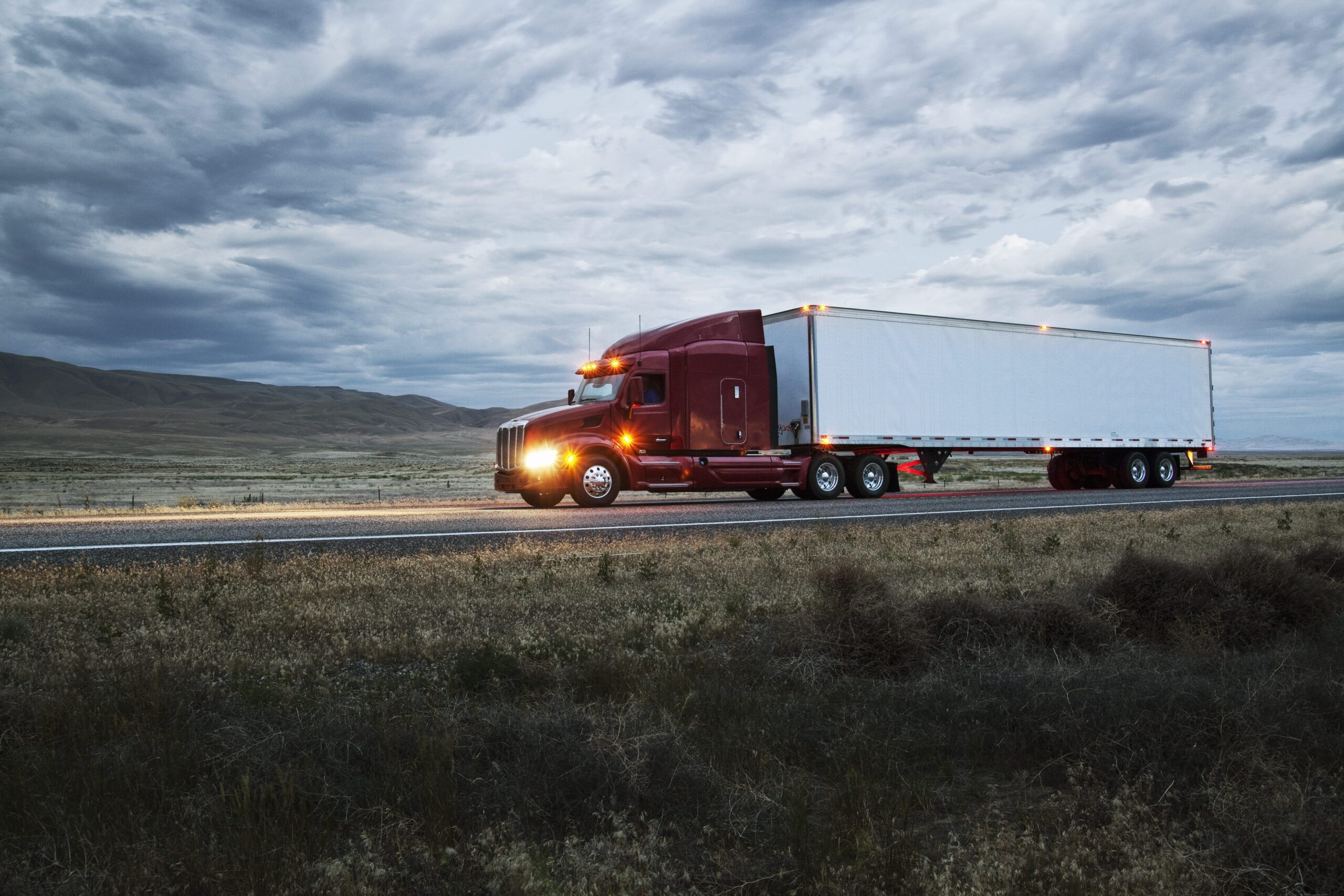Suffering injuries in a truck accident in Richmond usually requires medical care. You may also be dealing with lost income, disruption to your life, and other hardships. When a commercial truck driver or trucking company causes the crash, you shouldn’t have to shoulder those burdens alone.
An experienced Richmond truck accident lawyer at Allen & Allen can guide you through the claims process, hold the responsible parties accountable, and help you pursue fair compensation for your losses. You can reach out today for a free consultation to discuss your case.
Key takeaways: Richmond truck accidents
- Truck accidents in Richmond often involve factors like driver fatigue, improper cargo loading, poor vehicle maintenance, and reckless driving.
- Different types of trucks pose different risks, from large tractor-trailers to local delivery trucks.
- Federal and Virginia state laws regulate truck operations, and violations of these rules can strengthen your claim.
- Common injuries include brain trauma, spinal cord damage, broken bones, internal injuries, and burns.
- Multiple parties may share liability, including drivers, trucking companies, cargo loaders, and manufacturers.
Common causes of truck accidents in Richmond
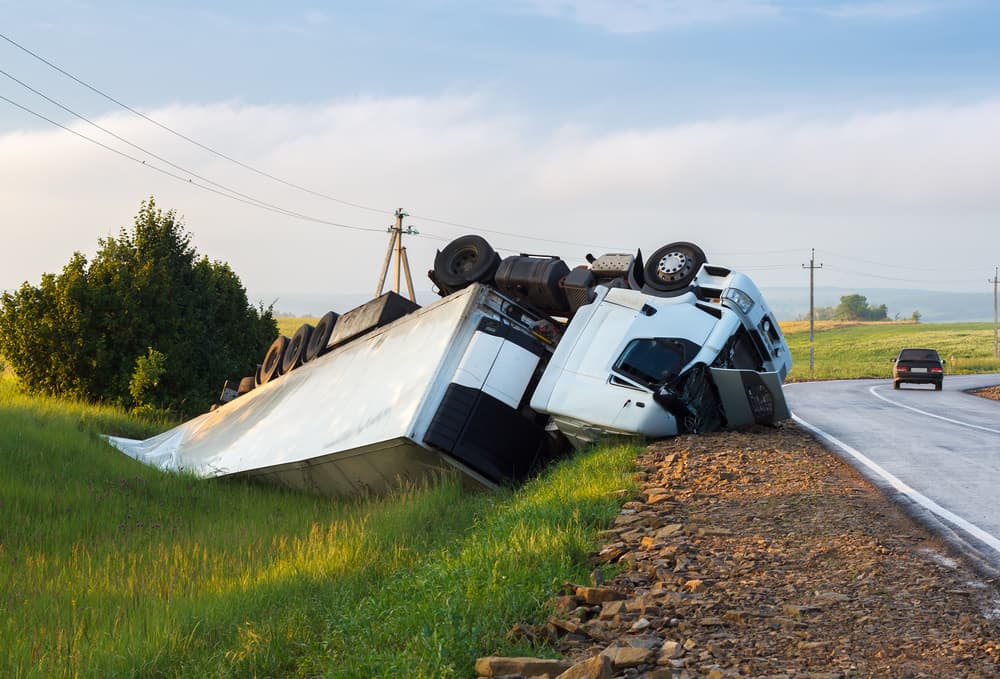
Truck accidents rarely happen without contributing factors. Investigations often reveal that poor decisions, unsafe practices, or negligence led to the crash. Some of the most frequent causes include the following.
Driver fatigue and hours of service violations
Truck drivers often spend long hours on the road, and fatigue slows reaction times and impairs judgment. Federal rules limit how many hours drivers can operate before resting, but some companies or drivers ignore these requirements. When that happens, tired drivers increase the risk of collisions.
Improper cargo loading and securement
Cargo that shifts during transit can destabilize a truck. Overloaded trailers or unsecured freight may cause rollovers, jackknifes, or lost loads. Federal and state laws outline cargo securement standards, but violations still occur when loaders cut corners.
Inadequate truck maintenance
Large trucks require regular inspections and maintenance to remain safe. Brake failures, tire blowouts, and steering issues often trace back to neglected maintenance. When companies delay or skip repairs, they put everyone on the road at risk.
Distracted driving
Using phones, adjusting GPS devices, or eating while driving takes attention off the road. A momentary distraction can cause devastating results when a vehicle weighs tens of thousands of pounds.
Speeding and reckless driving
Commercial trucks need more time and distance to stop safely. When drivers exceed speed limits, tailgate, or weave through traffic, they endanger other motorists. Aggressive driving behaviors often contribute to crashes on busy Richmond highways.
What types of trucks are involved in accidents?
Not every truck is a tractor-trailer. Different trucks serve different industries, and each type carries unique risks.
Commercial tractor-trailers
Eighteen-wheelers move freight across Virginia and beyond. Their size and weight can make even minor collisions severe. Interstate highways around Richmond often see crashes involving these trucks.
Delivery trucks
Local delivery vehicles, including those operated by retail companies or shipping carriers, frequently travel city streets. Their frequent stops and starts increase the chances of collisions with passenger cars, cyclists, and pedestrians.
Dump trucks
Used for construction and hauling heavy materials, dump trucks often operate in neighborhoods and work zones. Their loads can spill if improperly secured, and their large blind spots raise risks during backing maneuvers.
Tanker trucks
Tanker trucks transport liquids such as fuel or chemicals. Accidents involving tankers may cause fires, explosions, or hazardous material spills, adding another layer of danger to those nearby.
Virginia laws governing truck accidents
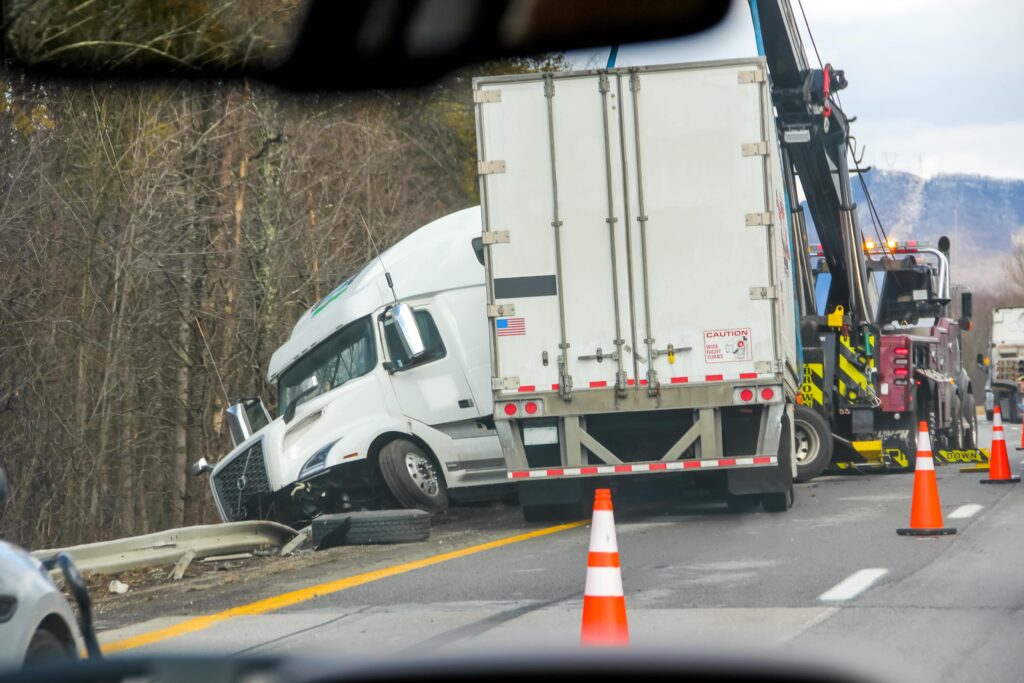
Truck accident claims involve both state and federal law. Understanding the rules that apply helps establish liability when violations occur.
Federal Motor Carrier Safety Regulations (FMCSR)
The FMCSR sets nationwide standards for commercial trucking. These include limits on driving hours, vehicle maintenance, cargo securement, and driver qualifications. Violations of these rules often serve as strong evidence in claims.
Virginia commercial driver’s license requirements
Truck drivers must hold a valid commercial driver’s license (CDL). Virginia requires drivers to meet specific testing, training, and health requirements to qualify. If a driver lacks proper licensing, that fact can weigh heavily in determining liability.
State weight and size restrictions
Virginia law sets limits on how heavy and large trucks can be on state roads. Overweight or oversized vehicles need permits. Trucks operating outside these limits without authorization may bear liability if they cause an accident.
Virginia statute of limitations for truck accident claims
Virginia law gives injured individuals two years from the date of the accident to file a personal injury lawsuit. Missing this deadline generally means losing the right to pursue compensation through the courts.
Claims against government entities
Personal injury claims brought against a city, town, county, state, or the federal government follow special rules. You must submit a written notice of claim within six months of the injury. That notice must include certain details about the claim and must be delivered to the officials identified by law as the proper recipients.
Submitting the notice doesn’t mean you can immediately proceed with a lawsuit. The law requires you to wait until the government agency either denies your claim or fails to respond within six months. After that, you may file a lawsuit as long as you’re still within the two-year statute of limitations.
What injuries are common in Richmond truck accidents?
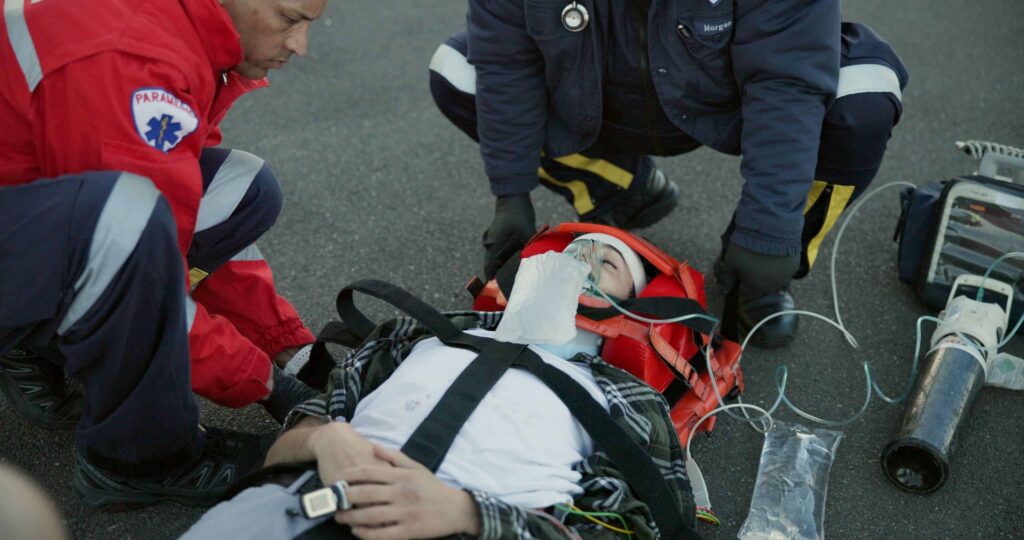
The force of a truck collision often leads to serious injuries. Victims may require long-term treatment and adjustments to daily life.
Traumatic brain injuries
Head impacts can cause concussions or more severe brain trauma. Symptoms may include memory loss, difficulty concentrating, or permanent cognitive changes.
Spinal cord injuries and paralysis
Damage to the spinal cord may result in partial or complete paralysis. These injuries often require ongoing medical care and can drastically alter mobility.
Broken bones and fractures
Fractures in arms, legs, ribs, or hips occur frequently in truck crashes. Recovery may involve surgery, physical therapy, and extended time away from work.
Internal organ damage
The impact of a truck accident can injure internal organs, sometimes without immediate symptoms. Emergency medical evaluation often detects injuries to the liver, spleen, or lungs.
Burn injuries
Explosions or fires in truck accidents may cause severe burns. Treatment often requires skin grafts and long hospital stays, along with lasting scarring.
Who can be held liable in a truck accident case?
Truck accident cases often involve more than just the driver. Multiple parties may share responsibility depending on the facts.
The truck driver
A driver who speeds, drives distracted, or breaks hours-of-service rules may be held accountable. Proving negligence often starts with the driver’s actions at the time of the crash.
The trucking company
Companies sometimes pressure drivers to meet unrealistic schedules or fail to maintain vehicles. They can be held liable for policies or decisions that contribute to accidents.
Cargo loading companies
If an independent contractor or another company loads the truck improperly, they may share liability for resulting accidents.
Truck manufacturers and parts suppliers
Defective brakes, tires, or steering systems may contribute to a crash. Manufacturers and suppliers can be held liable if faulty parts caused the accident.
Maintenance providers
Third-party companies that perform inadequate inspections or repairs may face liability if their negligence led to mechanical failures.
What evidence is needed to prove a truck accident claim?
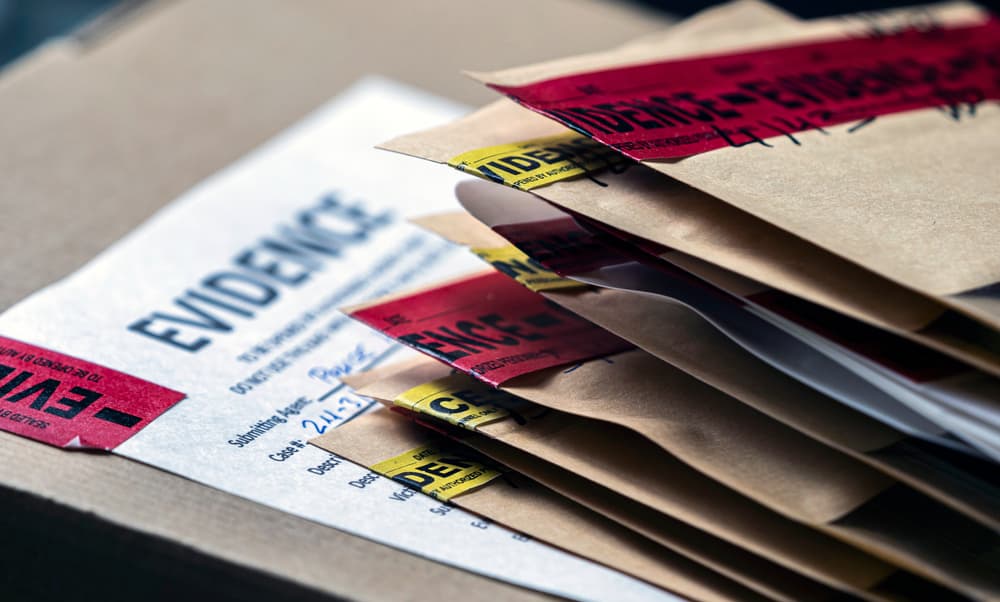
Evidence plays a central role in building a strong case. Gathering and preserving the right information helps establish fault.
Electronic logging device (ELD) data
Federal law requires most trucks to carry ELDs that record driving hours. These logs can reveal violations of rest requirements and help prove fatigue.
Driver logs and records
Beyond ELDs, drivers keep records of duty status. Comparing handwritten logs with electronic data can reveal inconsistencies or falsified reports.
Truck maintenance records
Repair logs and inspection reports provide insight into whether the truck was safe to operate. Missing or incomplete records may indicate negligence.
Black box data
Many commercial trucks contain event data recorders that capture speed, braking, and steering input before a crash. This information often provides key insights.
Police reports and accident scene evidence
Official reports, photos, and diagrams help document the crash. Skid marks, debris patterns, and vehicle positions strengthen claims.
Witness statements
Accounts from bystanders or other drivers help establish how the accident occurred. Neutral third-party witnesses often carry credibility with insurers and juries.
What compensation can victims recover?
Truck accident victims may pursue financial recovery for a wide range of losses. The law allows claims for both economic and non-economic damages.
Medical expenses and future medical care
Claims may include ambulance costs, hospital bills, rehabilitation, and long-term care. Projected future treatment also plays a role in calculating damages.
Lost wages and loss of earning capacity
Time missed from work due to injuries can add up quickly. In more serious cases, injuries may reduce a person’s ability to earn income in the future.
Pain and suffering
Accident victims often live with lasting pain, reduced mobility, or diminished quality of life. These damages account for the personal impact of injuries.
Property damage
Repair or replacement costs for vehicles and other damaged property form part of the claim.
Loss of consortium
Spouses may seek damages for loss of companionship, affection, and support resulting from serious injuries.
How our attorneys can help

Truck accident cases often involve powerful defendants and aggressive insurers. Attorneys at Allen & Allen take steps to protect your rights and strengthen your claim.
Thorough investigation of your accident
Our attorneys gather accident reports, witness statements, and electronic data to build a complete picture of what happened.
Handling communications with insurance companies
We step in to manage all contact with insurers. This prevents adjusters from pressuring you into early settlements that undervalue your losses.
Identifying all liable parties
Truck accident cases often involve several responsible parties. Our attorneys work to identify each one so no avenue for compensation is overlooked.
Calculating the full value of your claim
We carefully assess both current and future damages, from medical expenses to lost earning potential, to understand the impact of your injuries.
Negotiating maximum settlements
Insurance companies often resist paying fair amounts. When they refuse, our attorneys hold them accountable by presenting clear evidence and standing firm.
Taking your case to trial if necessary
When insurers or defendants refuse to accept responsibility, our trial lawyers prepare and present cases in court to pursue justice.
Frequently asked questions about VA truck accident claims
Do I need to report my truck accident to the police?
Yes. Virginia law requires drivers to report accidents involving injuries, fatalities, or significant property damage. Police reports also provide valuable evidence for your claim.
What should I do immediately after a truck accident?
After a truck accident, seek medical care, call the police, and gather as much information as possible. Take photos, get witness contact details, and exchange information with the truck driver. Avoid giving statements to the trucking company’s insurer without legal guidance.
How much does it cost to hire a truck accident lawyer?
Allen & Allen works on a contingency fee basis, meaning you don’t pay upfront legal fees. Attorney fees come from a portion of the settlement or verdict, not out of your pocket at the start.
What if the trucking company’s insurance adjuster contacts me?
Insurance adjusters may try to downplay your injuries or shift blame. Politely decline to discuss the accident and direct them to your attorney.
Why choose Allen & Allen?
Allen & Allen has stood for integrity, respect, compassion, and trust since 1910. Guided by these values for more than 100 years, the firm remains dedicated to protecting clients and their families.
We commit to more than simply providing you with legal representation. We commit to making your fight our fight, ensuring you are treated fairly by the insurance companies, and obtaining justice on your behalf. That’s what we mean when we say “I am an Allen.”
Clients turn to Allen & Allen because they want a law firm that treats them with care, listens to their concerns, and honors the responsibility of handling their case. That enduring commitment continues to guide every attorney in the firm today.
Contact our truck accident lawyers in Richmond now
Truck accident claims involve strict deadlines and evidence that may disappear quickly. Acting without delay strengthens your position. Allen & Allen’s Richmond truck accident lawyers stand ready to advocate for you, protect your rights, and seek justice after a crash caused by negligence.
Call 866-388-1307 now to schedule your free consultation and take the first step toward rebuilding your future.
Allen & Allen’s Office
Address: 3504 Plank Rd., Fredericksburg VA 22407
Phone: 866-388-1307

